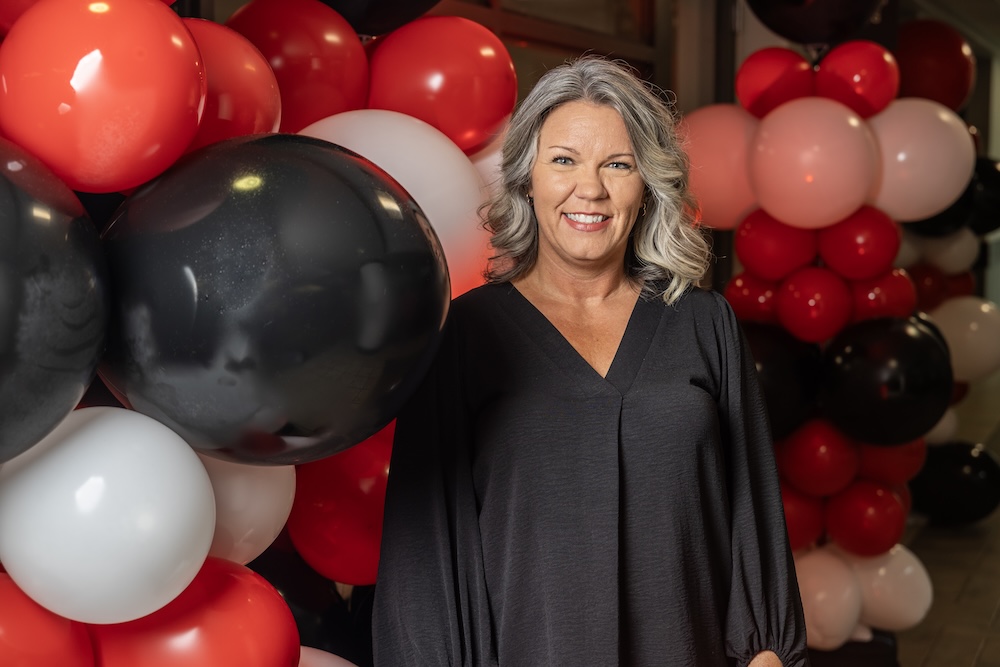Treasurer for Arkansas State University
Brandy Johnston was nominated by Meagan Wynn for P.R.O.P.S. Recognition. Wynn said, “Brandy has helped me so much starting at A-State. Brandy is an excellent role model and treats others with so much respect. She takes the time to explain things and how/why we do them this way, but is always open to opinions.”
P.R.O.P.S. subcommittee members Catherine Beaver, Elizabeth Duryea, and Cathy Naylor spoke with Brandy to learn more about her and her experience at A-State. Brandy serves as the Treasurer for Arkansas State University.

What do you like most about A-State?
One thing I really like is that we all have the opportunity to watch people's lives change. We get to see our students go through that whole progression of coming in - some of them really
unsure, or some of them very sure of themselves. We get to see them kind of go through those growing up phases and change their lives and I think it's really neat to be able to have a seat to watch that.
What do you wish everyone knew about your job on campus?
Probably that in the Treasurer’s Office, we aren't the bad guys. We do have that reputation on campus of being the ones that are really hard-nosed and have really strict guidelines. And we do, but we want to help as many people as we can. I think that's one of the things that's hard about working in our office - people only see pieces of it and they don't see all the work behind the scenes and that we really do try to keep our students here and moving forward.
If you could travel anywhere, where would it be?
Anywhere with a beach, somewhere tropical. That's always my go-to because I love the sunshine and the warmth and the water.
What is your favorite hobby?
Usually reading, but I started playing tennis a few years ago, so that's kind of my second favorite. I'm clumsy, so it's not great. But primarily reading.
What is the best advice you’ve ever received?
I think one of the best pieces of advice I've ever received was that with your staff, you basically need to coach yourself out of a job. You should be elevating the people you work with in a way that they could take over for you and make yourself not needed. That’s easier said than done.
Who is one of your biggest role models?
I would say my boss, Russ Hannah. I've worked in his area the entire time I've been here at ASU and he's just very patient and very level-headed. He doesn't get visibly wound up about anything, which is not something I can say for myself, but I would say he has been one of my biggest role models.
What accomplishments are you most proud of?
Part of me says my kids - I have two kids. One of them is an adult now and the other one is almost there. I also think staying here for as many years as I've been here is an accomplishment - I've been here 23 years.
What is a dream or goal you’re currently working towards?
I don't know if there's anything that I would consider a big goal I'm working on right now, other than constant improvement in the areas I work with. Trying to find better ways to do things and making things flow more smoothly for everyone. That's a never-ending goal.





